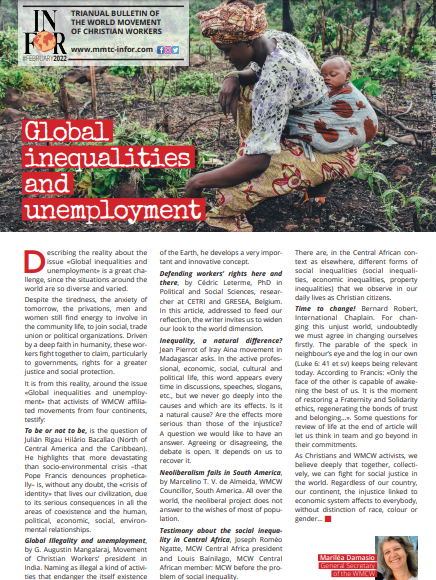
Back in September 2014 the MCW Review featured an article by a Primary School Teacher and her colleagues sharing their experiences of working life. It describes how some had chosen to go part-time just so that they didn‟t have to work weekends which is what the result of full-time teaching actually meant in practice. The demands of work time and balancing family life meant exhausted teachers. Now, 4 years later newspaper headlines point to the fact that there is an “out flux” of teachers lining up to leave (Guardian Education, 10th April 2018). This June edition mirrors the same phenomena, albeit highlighting how the demands of the workplace are affecting the health of workers.
Various political parties have supported quotas being introduced into public services and contracted-out services; companies have set up exacting timescales of service provision, delivery and response times which have met with general popular approval. As a result, expectations have risen within the general population. However, these populist measures when introduced failed to acknowledge that whilst we are customers, travellers, students, patients, we are also the workers who have to provide and maintain this same level of immediate service demand. Individuals can allocate themselves or be allocated into particular compartments where they become at odds with each other and themselves particularly when, simultaneously, funding and resources are cut for a variety of reasons. Unsustainable and unworkable are words repeated as article after article in various newspapers refer to the widespread recognition of work-related stress. Long hours; not in control of how the job or role is carried out; no input into how the job could be improved; working towards goals and quotas that are more quantifiable than qualitative; all contribute to the stress factors being identified in too many places of work.
The statistics from the Health & Safety Executive reported in this edition underlies the presentation contents given at the various meetings marking International Workers‟ Memorial Day. The lost working days because of work demands demonstrate the conditions, pressure and obligations being made on and met by workers. Elizabeth, a young woman, set on being a good doctor and looking after those who needed health care could only come to one conclusion to save her own sanity: to leave; to walk away. Her article is telling in many ways. It highlights how, when pushed to step up and speak out; to stand up for yourself and those around you it results in a blame game. Consequently, solidarity is lost and the individual is isolated as if it is only their problem. Thus, any fundamental issue shaping all their lives gets lost and at the very least the workplace is fractured or, at worst, broken. Dr Caroline Elton is author of “Also Human: The inner Lives of Doctors”. One reviewer of this book, Rosie McConachie, seems to capture and sum up exactly the issues which Elizabeth was conveying, “the book looks at the ways the system fails doctors and medical students and to some extend the ways some doctors fail one another.”
The MCW welcomed Otto Meier and Toni Santamaria in preparation for the European Seminar taking place in Birmingham during October 2018. With the theme Digital Work, anytime, anywhere and its impact on workers and their families the experiences in this edition, although not specifically about digitalisation, are more than likely to be replicated and will inevitably beg the question how we can protect the rights of all workers.









